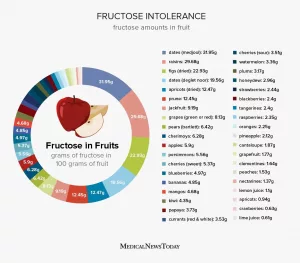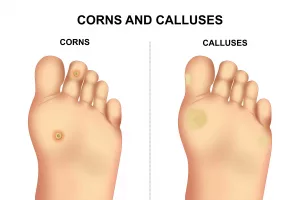Carrots supply a variety of nutrients, including beta-carotene and antioxidants, that can support overall wellbeing when included in a nutrient-dense diet.

The carrot (Daucus carota) is a root vegetable often touted as an ideal health food. It’s crisp, flavorful, and packed with nutrients.
Carrots are especially rich in beta-carotene, fiber, vitamin K1, potassium, and antioxidants, while being low in calories.
They also offer multiple health advantages. Carrot consumption has been associated with reduced cholesterol, better eye health, and the carotenoid antioxidants they contain have been linked to a lower risk of certain cancers.
Carrots appear in many hues — yellow, white, orange, red, and purple. The vibrant orange color comes from beta-carotene, an antioxidant your body converts into vitamin A.
This article covers what you should know about carrots.
Nutrition facts
A carrot’s water content varies, and the edible portion is mostly carbohydrates.
Carrots contain minimal fat and protein.
The nutrition facts for two small-to-medium raw carrots, or (g), are:
- Calories: 41
- Water: 89%
- Protein: 0.8 g
- Carbs: 9.0 g
- Fiber: 2.7 g
- Fat: 0.1 g
Carbs
Carrots are predominantly made up of water and carbohydrates.
The carbohydrate portion includes starch and sugars like sucrose and glucose. They’re also a fairly good source of fiber, with one medium carrot (61 g) providing a notable amount.
Carrots typically score low on the glycemic index (GI), which gauges how rapidly foods raise blood glucose after eating. Their GI ranges from 30 to 85, and the glycemic load ranges from 2.0 to 4.25. The lowest values are for raw carrots, while cooked ones have higher values.
Consuming low-GI foods offers various health benefits and is especially useful for people managing diabetes.
Fiber
Pectin is the primary soluble fiber in carrots.
Soluble fibers can help lower blood sugar by slowing the digestion of sugars and starches.
They also nourish beneficial gut bacteria, which can promote better health and lower disease risk.
Some soluble fibers can hinder cholesterol absorption in the gut, helping to reduce blood cholesterol.
The main insoluble fibers in carrots are cellulose, hemicellulose, and lignin. Insoluble fiber may lessen the risk of constipation and support regular bowel movements.
Vitamins and minerals
Carrots are a good source of several vitamins and minerals, particularly biotin, potassium, and vitamins A (from beta-carotene), K1 (phylloquinone), and B6.
- Vitamin A: Carrots are high in beta-carotene, which the body converts into vitamin A. This vitamin supports vision and is essential for growth, development, and immune function.
- Biotin: Also called vitamin H, biotin is a B vitamin that plays a role in fat and protein metabolism.
- Vitamin K1: Known as phylloquinone, vitamin K1 is vital for blood clotting and may support bone health.
- Potassium: This essential mineral helps with blood pressure regulation.
- Vitamin B6: A group of related compounds that assist in converting food into usable energy.
Other plant compounds
Carrots provide many plant compounds, notably carotenoids.
These compounds have strong antioxidant effects and have been connected with enhanced immune function and a decreased risk of various conditions, including heart disease, degenerative disorders, and some cancers.
Beta-carotene, the primary carotenoid in carrots, can be turned into vitamin A in the body, though conversion efficiency varies by person. Consuming fat with carrots increases beta-carotene absorption.
The main plant compounds found in carrots include:
- Beta-carotene: Orange carrots contain high amounts of beta-carotene. Cooking improves its absorption.
- Alpha-carotene: Another antioxidant that, like beta-carotene, is partially converted into vitamin A in the body.
- Lutein: A common antioxidant in carrots, especially yellow and orange varieties, important for eye health.
- Lycopene: A red antioxidant present in red and purple carrots as well as other red produce. Lycopene may lower the risk of certain cancers and heart disease; cooking releases more lycopene and enhances absorption.
- Polyacetylenes: Recent studies have identified bioactive compounds in carrots that may help protect against leukemia and other cancers.
- Anthocyanins: Potent antioxidants found in dark-colored carrot varieties.
Health benefits of carrots
Most research on carrots has centered on their carotenoids.
Reduced risk of cancer
Diets high in carotenoids may help guard against several cancers, including prostate, colon, and stomach cancers.
Women with elevated circulating carotenoid levels may also experience a reduced risk of breast cancer.
Carotenoids have been associated with protection against lung cancer, although more evidence is needed to confirm a direct link.
Lower blood cholesterol
High blood cholesterol is a known risk factor for heart disease.
Eating carrots has been associated with reductions in cholesterol levels.
Weight loss
As a low-calorie food, carrots can promote feelings of fullness and reduce calorie consumption at later meals.
For this reason, they can be a helpful part of an effective weight-loss plan.
Eye health
People who are deficient in vitamin A are more prone to night blindness, which may improve with the consumption of carrots or other vitamin A–rich foods.
Carotenoids may also lower the risk of age-related macular degeneration.
Organic vs. conventionally grown carrots
Organic farming employs natural techniques for cultivation, though organic crops may still be treated with plant-derived pesticides.
A study comparing organic and conventionally grown carrots found no difference in carotenoid levels, antioxidant content, or quality.
However, conventionally raised carrots may carry pesticide residues. The long-term effects of low-level pesticide exposure are not fully known, and some experts have raised concerns. Washing and peeling carrots before eating raw or cooking them effectively removes residues.
Baby carrots

Baby carrots have grown in popularity as a convenient snack.
There are two types commonly called baby carrots:
- whole carrots harvested while still small
- baby-cut carrots, which are sections from larger carrots machine-cut to size, then peeled, polished, and sometimes washed with small amounts of chlorine before packing
There’s little nutritional difference between regular and baby carrots, and their health effects are similar.
Individual concerns
Carrots are generally safe to eat but can cause adverse reactions in some people.
Consuming excessive carotene can tint the skin yellow or orange, though this is harmless.
Allergy
According to a report, carrots can cause pollen-related allergic responses in up to 25% of people with a food allergy.
Carrot allergy is an example of cross-reactivity, where proteins in certain fruits or vegetables trigger an allergic reaction due to similarity with pollen proteins.
If you’re sensitive to birch or mugwort pollen, you may react to carrots.
Symptoms can include tingling or itching in the mouth; in some cases, swelling of the throat or severe anaphylaxis may occur.
Contamination
Carrots grown in polluted soil or irrigated with contaminated water can accumulate higher levels of heavy metals, affecting their safety and quality.
Still, the agency that regularly surveys foods sold in the United States tests them for contaminants such as arsenic, cadmium, lead, and mercury.
The bottom line
Carrots make an excellent snack — crunchy, nutrient-rich, low in calories, and naturally sweet.
They’re linked to heart and eye health, better digestion, and may aid weight loss.
This versatile root vegetable comes in a range of colors, sizes, and shapes, all of which make valuable additions to a healthy eating pattern.
























Leave a Reply
You must be logged in to post a comment.